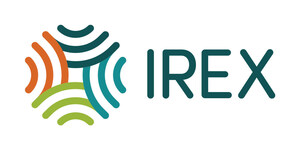Hope for Fourth Estate in Eastern Europe Despite Many Hardships
WASHINGTON, May 4, 2015 /PRNewswire/ -- Amid declining or stagnant media health in several Eastern European and former Soviet countries some positive trends are emerging, demonstrating that not all hope is lost in the region when it comes to freedom of speech and quality journalism. Nonetheless, serious challenges do remain. IREX's 2015 Media Sustainability Index (MSI) for Europe & Eurasia produced these findings and more. See http://www.irex.org/msi for the full text of the report.
Of note, Albania, Armenia, and Moldova have all progressed consistently in recent years. Ukraine improved once the Yanukovych regime departed. Georgia and Croatia remain relatively strong. Even Macedonia, which for seven years deteriorated, showed modest improvement.
In a few countries, however, signs of improvement are likely blips on an otherwise downward path or unable to break stagnating animosity toward a free press. In Belarus, for example, some pressure was taken off the media in recent months—but presidential elections in late 2015 will likely cause renewed oppression.
The MSI measures the health of a country's media sector by scoring five component parts, including the legal environment, quality of journalism, and media management practices.
Sources of revenue and finance remain key impediments to media performance throughout the region. "It's no longer fashionable to use a heavy-handed approach to control information—although there are a few countries not with the fashion," said Leon Morse, MSI managing editor. "Instead we see important media owned by ruling party allies, while independent-minded media are starved of advertising or locked out of new digital broadcasting opportunities thanks to dubious licensing practices," he concluded.
One of the MSI's Croatian contributors elaborated further on the challenges, saying "Such a persistent crisis in the media sector is a result of a combination of a contracted advertising market and media management incapable of coping with a new market environment. In the initial phase of the crisis, some print media managers had tried to fight the downward circulation trend by trivializing the content, which resulted in the loss of trust in media and a further drop in circulation."
The U.S. Agency for International Development funds the Europe and Eurasia MSI in 21 countries. The MSI is a trusted evaluation of global media health, providing donors, media advocates, local professionals, and scholars more than a decade of rich data.
Jennifer Nevin, Senior Communications Manager, IREX, +1-202-628-8188, newsroom@irex.org



Share this article